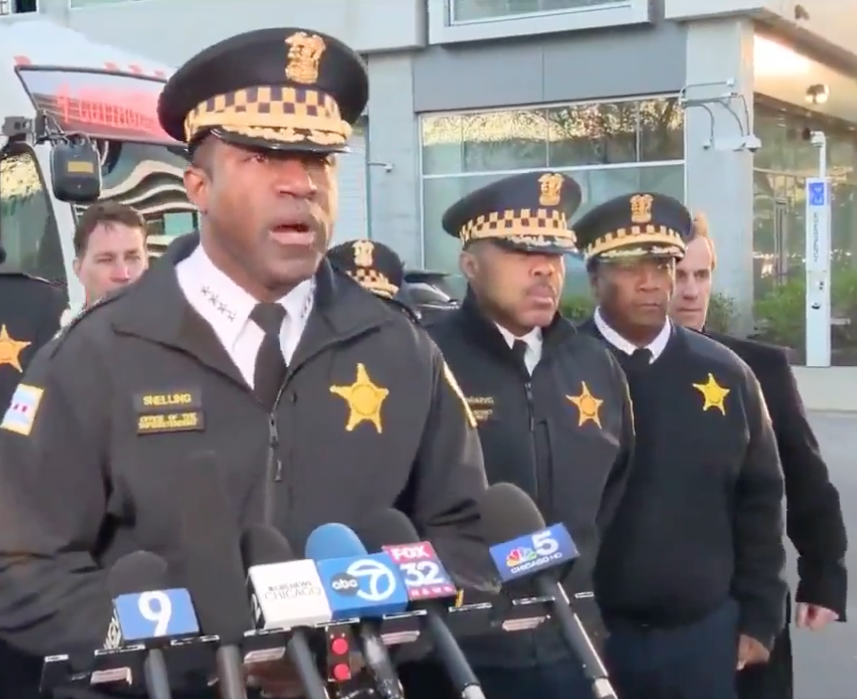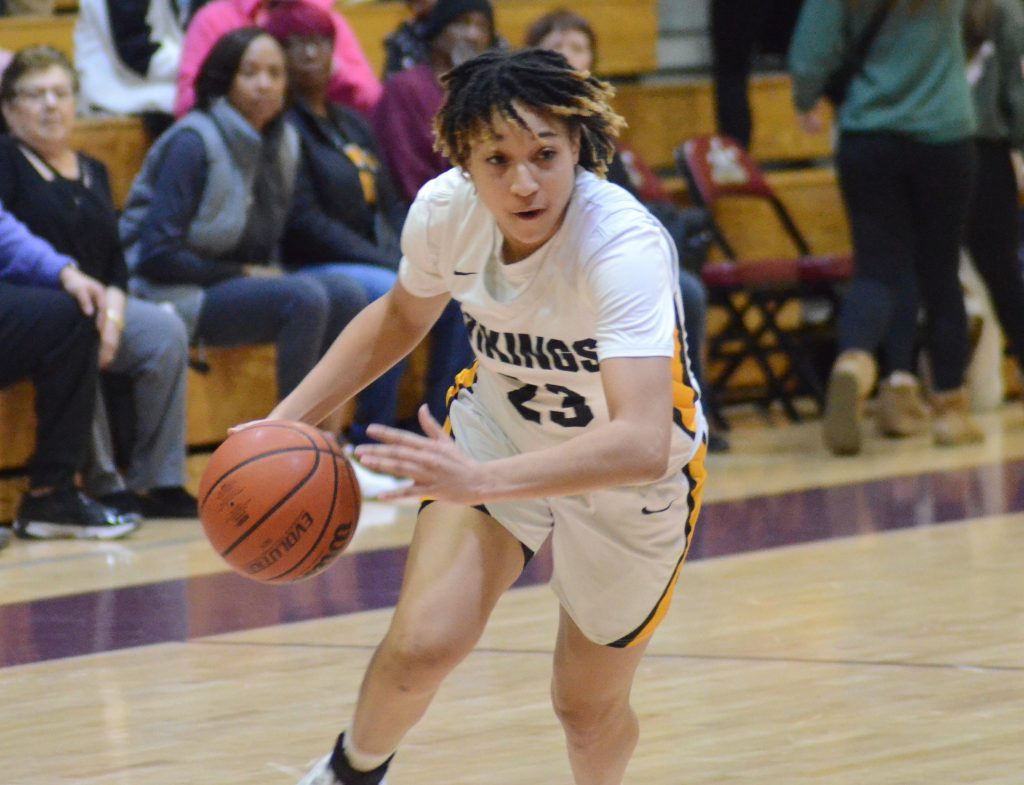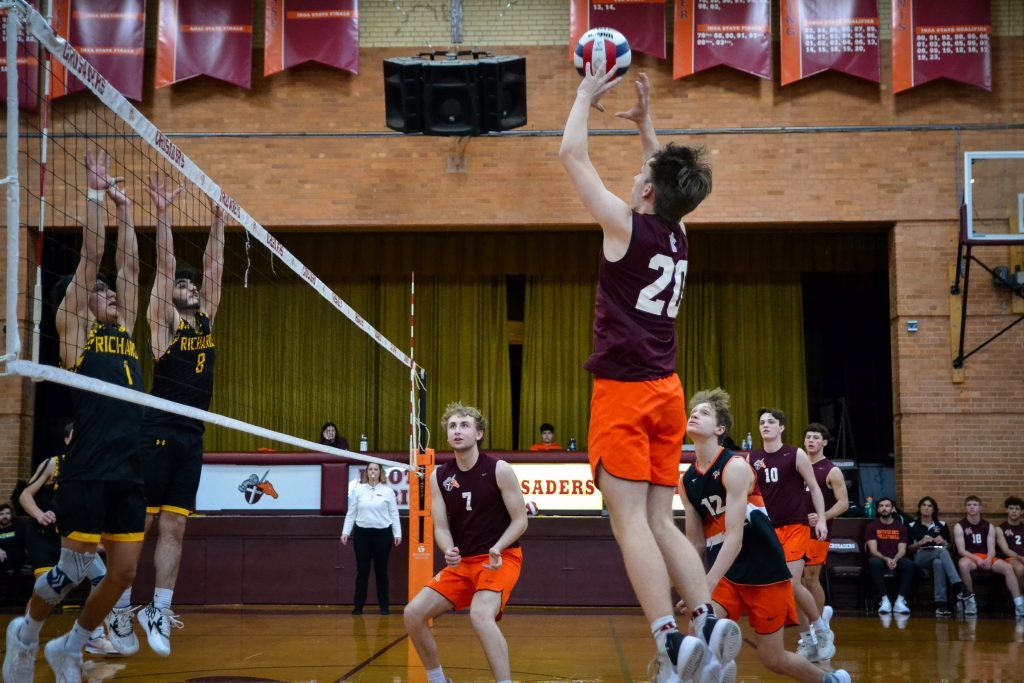
CAPITOL RECAP: Lawmakers will return to Springfield next week to hear energy bill
By Capitol News Illinois
SPRINGFIELD – Lawmakers will be back in session next week to consider a sweeping energy overhaul bill and possibly other legislation.
The Senate is planning to come in Tuesday, June 15, and the House is planning to meet Wednesday, June 16.
An announcement from Senate President Don Harmon’s office said, “It is expected that the Senate session will be one day only,” with the purpose of passing “clean energy legislation that Gov. JB Pritzker negotiated to set Illinois on a path to a nation-leading renewable energy plan.”
The House left the door open for further action, including consideration of an elected Chicago school board bill which already passed the Senate.
“As I indicated before we adjourned on the final day of session, the House is expected to return next week on Wednesday, June 16, to take care of some final-action legislation,” House Speaker Emanuel “Chris” Welch said in a statement. “Items such as the energy proposal, unemployment insurance, and an elected school board for Chicago will be at the top of our list. We were able to accomplish big things this legislative session, and I’m eager to keep that spirit alive in a quick special session next week.”
The energy proposal, which has been in negotiations since Pritzker’s first year in office in 2019, had not yet been filed in bill form as of Tuesday, but lawmakers and stakeholders had previously noted it was agreed to in principal.
One of the sticking points at the end of the regular legislative session was whether municipal energy providers would be exempted from a provision in the bill that aims to shut down coal plants in the state by 2035.
* * *
MAPS SIGNED: Gov. JB Pritzker signed a pair of bills Friday, June 4, that redraw state legislative and appellate court districts, despite the fact that official U.S Census data needed to ensure equal representation has not yet been delivered.
In a statement released Friday afternoon, Pritzker said he signed the measures after reviewing the maps to make sure they complied with state and federal law by ensuring minority representation.
“Illinois’ strength is in our diversity, and these maps help to ensure that communities that have been left out and left behind have fair representation in our government,” Pritzker said in the statement. “These district boundaries align with both the federal and state Voting Rights Acts, which help to ensure our diverse communities have electoral power and fair representation.”
Reaction to Pritzker’s announcement was swift. House Speaker Emanuel “Chris” Welch called the signing “a win for the people of this great state.”
“With Governor Pritzker’s signature, people of Illinois can be confident in a legislative map that is reflective of the diversity that we see in every corner of our state,” Welch said. “Not only does this map adhere to state and federal laws, but it is a product of more than 50 public hearings where citizens came to tell us what their communities look like to them.”
But Republican Sen. Jason Barickman, of Bloomington, the minority spokesman on the Senate Redistricting Committee, accused Pritzker of going back on his campaign pledge to support an independent mapmaking process.
“The people of Illinois deserve a fair, transparent process that allows them to choose their representatives in government,” Barickman said. “Pritzker turned his back on them and chose instead to use his signature to further enshrine the broken status quo of politicians picking their voters.”
The redistricting process is highly political, even in a normal year, because it gives the majority party the ability to draw district maps that will favor them for the next decade.
But it was especially heated in the General Assembly this year, not just because the release of detailed census data has been delayed, but because, as a candidate running in 2018, Pritzker supported creating an independent redistricting commission – the so-called “Fair Maps” proposal – and had vowed to veto any maps drawn by lawmakers or their staffs.
“No one twisted his arm to say what he said,” Republican Congressman Rodney Davis, R-Taylorville, said during a news conference Thursday, June 3, in Springfield. “No one told him, ‘You have to make this pledge.’ No one told Gov. Pritzker when he was campaigning, that he needed to campaign and be in favor of a fair map process.”
During a separate interview Thursday afternoon, however, Pritzker said the opportunity to create an independent commission had passed and that Republicans were trying to delay the process for their own political advantage.
“They (the General Assembly) took off the table a constitutional amendment for an independent redistricting commission. That never happened in the legislature,” Pritzker said in a phone interview with Capitol News Illinois. “So then you’re left with, the two sides really need to work together, whether that was in a construct of an independent commission or just working in a bipartisan fashion. The Republicans seemed not to be interested in doing that.”
“What they really wanted was a map that favors them,” Pritzker continued. “You know, they don’t like to say that, but that’s what they were after.”
The legislative redistricting bill is Senate Amendment 1 to House Bill 2777. The judicial redistricting bill is House Amendment 2 to Senate Bill 642.
In addition to those measures, Pritzker also signed House Amendment 1 to SB 2661, which redraws districts for the Cook County Board of Review, a body that hears property tax appeals in Cook County.
* * *
GOP LAWMAKER SUES FOR PAY: A former state lawmaker is suing the state comptroller for salary increases he claims he was entitled to while serving in the Illinois General Assembly for 12 years, even though he voted against those raises as a lawmaker.
Former Rep. Mike Fortner joins two other former state senators in filing separate lawsuits against Illinois Comptroller Susana Mendoza over pay raises that they argue are mandated by the state constitution.
Fortner served in the Illinois General Assembly from January 2007 to January 2019 as a Republican representing suburban West Chicago. Former Democratic Sens. Michael Noland, from Elgin, and James Clayborne Jr., from Belleville, filed a similar lawsuit in 2017 and 2018 for not receiving salary increases.
Fortner’s class-action lawsuit in Cook County Circuit Court claims that the automatic cost of living increases to lawmakers’ salaries were eliminated in violation of the Illinois Constitution.
He argues that the laws passed by the Illinois General Assembly to change lawmakers’ salaries in the middle of their term violates the section of the constitution that states salary changes for lawmakers “shall not take effect during the term for which he has been elected.”
In a statement, Mendoza called the lawsuit “an ill-advised class(less) action lawsuit seeking to retroactively take from taxpayers money for raises he voted not to take through legislation he co-sponsored.”
Fortner’s lawsuit claims that the General Assembly passed 10 laws between 2009 and 2018 that eliminated lawmakers’ cost-of-living adjustments mid-term, and five laws between 2009 and 2013 that imposed mid-term furlough days that reduced lawmakers’ pay.
It claims that the statutes are void because they violate the constitution, and Fortner is entitled to receive his full salary adjustments for the period from July 2009 to January 2019, as well as the payments that were withheld as furlough days.
* * *
INMATE VOTING: Illinois lawmakers could take up a bill later this month that would restore voting rights to convicted offenders serving time in county jails or state or federal prisons, according to the bill’s House sponsor.
Rep. La Shawn Ford, D-Chicago, said the bill almost came up for a vote during the final days of the regular session but was delayed due to some last-minute confusion.
Lawmakers wrapped up the bulk of their spring session on Tuesday, June 1, but they did not formally adjourn the session because negotiations were continuing on a massive energy. They will be back in town June 15-16 to consider that energy bill and possibly others.
Ford’s proposal to restore voting rights to convicted inmates, originally contained in House Bill 1872, was the subject of a committee hearing in March, but the committee never voted on it.
During that hearing, Rep. Patrick Windhorst, R-Metropolis, questioned whether it would require a constitutional amendment before it could take effect because the Illinois Constitution states that, “A person convicted of a felony, or otherwise under sentence in a correctional institution or jail, shall lose the right to vote, which right shall be restored not later than upon completion of his sentence.”
Advocates for the bill, however, noted that the words “not later than” suggest that the framers of the constitution anticipated that lawmakers might want to restore those voting rights earlier than upon completion of a sentence.
In hopes of getting the bill through in the final days of the session, Ford introduced what is known as a “gut and replace” amendment to a Senate bill, SB 828, which passed committee last week before stalling on the floor.
* * *
APPELLATE MAPS DELAYED: The Illinois Supreme Court will delay its transition to implement new appellate court boundaries that were created by a recently approved judicial district map until further notice.
“Appeals and other matters shall continue to be filed in the judicial districts as they existed on June 3, 2021, until further order of the Court,” according to the court order released on Monday, June 7.
Last month, lawmakers redrew four of the five judicial districts along with the state’s legislative districts, the latter of which is a process required by the state constitution every 10 years following the decennial census. Gov. JB Pritzker signed the maps into law on Friday, June 4.
The delay is needed “in view of the numerous changes to the processing of appeals and the administration of the justice system in Illinois necessitated by (the new judicial map),” according to the order. That includes changes to e-filing and case management systems, redistribution of staffing and judicial resources, training for judicial stakeholders and education of the public and members of the bar.
The five judicial districts that are used for electing the seven Illinois Supreme Court justices are the same district boundaries used to elect judges within the five appellate court districts.
* * *
COVID-19 UPDATE: Gov. JB Pritzker’s office confirmed last week that Phase 5 will begin Friday, June 11, essentially lifting all of the COVID-19 capacity restrictions that have been in place for over one year. That means businesses, large-scale events, conventions, amusement parks and seated-spectator venues can all return to full capacity beginning Friday.
That announcement came as the state’s COVID-19 case positivity rate – a disease spread indicator that has been widely used to determine what level of restrictions would be in place throughout the pandemic – continued to plummet, hitting a new low of 1.1 percent Monday, June 7.
While businesses will still be allowed to have stricter masking and social distancing policies than the state, the new guidance follows the U.S. Centers for Disease Control and Prevention recommendation that face coverings are not needed indoors for vaccinated individuals.
Masks are still “recommended” for unvaccinated individuals, according to the governor’s office.
Masks will still be required for people traveling on public transportation, in congregate settings, in health care settings, as well as in schools, day cares and educational institutions, according to the governor’s office.
According to IDPH, more than 11.6 million vaccine doses have been administered in the state, with 50.3 percent of the state’s aged-12-and-older population having been fully vaccinated.
The death toll of the virus had reached 22,963 in Illinois as of Monday, with 14 deaths reported over the previous 24 hours. Thus far in June, the number of daily COVID-19-related deaths have hovered between six and 42 each day. At the pandemic’s height in December, 238 died in one day.
Hospitalizations continue to push past their lowest points in the pandemic as well, with 788 hospital beds in use by COVID-19 patients as of Sunday night, a decrease of more than 300 from a week ago. That number peaked at more than 6,000 in November.
* * *
BUDGET PASSED: Illinois lawmakers worked into the early hours of Tuesday morning, June 1, to pass a $42.3 billion state budget plan for the upcoming fiscal year that Democrats say would fully fund K-12 education and the state’s pension obligations while also paying down a sizeable portion of the state’s debt.
Lawmakers had been working on the budget since Gov. JB Pritzker delivered his proposal in February, and it passed on mostly partisan lines.
The job became easier with better-than-expected tax collections this year as well as passage of the federal American Rescue Plan Act, or ARPA, which will provide about $8.1 billion that the state can spend over the next four fiscal years.
Lawmakers said they plan to use the money for one-time projects such as affordable housing development, public health improvements, violence prevention programs and infrastructure projects.
Republicans, however, complained that the infrastructure spending was entirely directed by Democrats.
Presenting the budget to a committee May 31, House Majority Leader Greg Harris, D-Chicago, contrasted the situation Illinois faces now with the dire conditions it faced one year ago at the height of the COVID-19 pandemic.
“Here we sit today. We are back in our state Capitol,” he said. “We have vaccines. The world is beginning to open back up. We are seeing a bright, sunny day outside and there’s a lot to talk about that we have accomplished in the last year as a state that has put the state of Illinois in a far more stable place financially and a responsible place fiscally.”
Highlights of the proposed budget include increasing funding for the evidence-based funding plan for K-12 public schools by $350 million, bringing the total to $9.2 billion.
It also calls for spending about $7.5 billion in state general revenues on Medicaid, plus another $7.4 billion for other human services; $1.9 billion for higher education; another $1.9 billion for public safety; and $1.4 billion for general services.
In addition to those regular items, Harris said, the plan calls for spending about $2.5 billion of the ARPA money Illinois expects to receive. Of that, $1.5 billion would go for things like economic recovery programs to help businesses hardest hit by the pandemic, public health, affordable housing and violence prevention programs like after-school activities, and summer youth employment.
* * *
ETHICS REFORM: Shortly after 1 a.m. Tuesday, June 1, the Illinois Senate passed a bill aiming to improve ethics standards for elected officials after it was filed just hours earlier.
An amendment to Senate Bill 539, introduced by Sen. Ann Gillespie, D-Arlington Heights, passed with bipartisan approval despite House Republicans’ concerns that it was watered down.
“This legislation takes the first steps in addressing some of the most egregious scandals in our state’s history,” Gillespie said in a news conference Monday night, May 31. “While it won’t end corruption overnight, it closes many of the loopholes that have allowed bad actors to game the system for decades.”
The measure passed the House 113-5 Monday and the Senate unanimously early Tuesday morning. The bill will need only a signature from the governor to become law.
The bill creates a uniform requirement for statements of economic interests, requiring all candidates to disclose all personal assets and debts totaling over $10,000, all sources of income over $7,500 per year, as well as any personal relationships with individuals who serve in government or work as lobbyists.
Each interest statement would also be required to be reviewed by a state ethics officer, and candidates would also be required to disclose all campaign donations over $500.
The bill further expands limitations on fundraising efforts, preventing lawmakers from holding campaign fundraisers across the state on any day the General Assembly is in session, or on a day immediately preceding session.
The bill also prevents former lawmakers and officers of the executive branch from taking a lobbying job within six months of leaving their public position in what is typically referred to as a “revolving door.”
* * *
CRIMINAL JUSTICE REFORM: The General Assembly this week passed legislation addressing lingering concerns from law enforcement about a massive criminal justice reform omnibus passed earlier this year.
Introduced by Chicago Democratic Sen. Elgie Sims, an amendment to House Bill 3443 would act as trailer legislation for the SAFE-T Act, a major criminal justice reform backed by the Illinois Legislative Black Caucus that was signed into law by Gov. JB Pritzker in February. That measure mandated body cameras and changed use-of-force guidelines for law enforcement, created a new police certification system, expanded detainee rights and ends the use of cash bail in Illinois.
Unlike the SAFE-T Act , Sims’ new legislation has the support of the Illinois Association of Chiefs of Police and the Illinois State Police and amends some controversial portions of the act that were opposed by law enforcement.
In a statement posted to its website, the IACP approved of the amendment’s changes relaxing rules around body cameras, removing some use-of-force restriction language and extending deadlines for new training standards.
It passed the Senate 42-17, but in the House, Rep. Justin Slaughter, D-Chicago, who negotiated most of the major provisions in the SAFE-T Act alongside Sims, ran into opposition from fellow Chicago Democratic Rep. Curtis Tarver.
Tarver called the trailer legislation a “piss-poor bill,” and rejected the idea that it was a Black Caucus amendment because Slaughter did not present it to the entire Black Caucus before he and Sims introduced the legislation.
The legislation ultimately passed 79-36, with multiple Republicans voting in favor of the measure and Tarver voting as the sole dissenting Democrat. A brief parliamentary hold was put on the bill, but as of Wednesday, June 2, it had been lifted, clearing the way for it to head to the governor.
* * *
STALLED BILLS: In the final days of the legislative session, lawmakers passed bills to allow for college athletes to be paid for their likeness, to phase out isolation and seclusion practices at school, and to create more affordable housing units.
Despite the hectic rush to move important legislation by the May 31 deadline, some consequential bills did not come up for a final vote.
A bill to repeal the parental notification requirement for young girls seeking an abortion didn’t come up for a vote. Bills to license professional midwives and decriminalize small amounts of drugs passed in the House but not the Senate.
While these bills appeared to be stalled this spring session, they could still be taken up for a vote if lawmakers return to session later this summer to address energy legislation.
* * *
IMMIGRATION LEGISLATION: Illinois lawmakers passed bills advanced by the Legislative Latino Caucus that would close the state’s three immigrant detention centers and strengthen existing protections against local and federal law enforcement.
The Illinois Way Forward Act, or Senate Bill 667, requires that the existing agreements between local jails in McHenry, Pulaski and Kankakee counties and Immigration and Customs Enforcement must end by Jan. 1, 2022. The bill also prohibits any future agreements between ICE and local governments to “house or detain individuals for federal civil immigration violations.”
The bill would also strengthen the TRUST Act, or “Transparency and Responsibility Using State Tools,” which took effect in 2017.
The TRUST Act prohibits state and local law enforcement officials from detaining “any individual solely on the basis of any immigration detainer or nonjudicial immigration warrant.”
Under the TRUST Act, state and local police cannot arrest or detain individuals based on suspected or actual immigration status. It also prohibits police from holding or detaining people based on ICE arrest warrants or detainers.
But there are other types of cooperation that local police can engage in with federal immigration enforcement, such as cooperating in joint operations with ICE, said Fred Tsao, who is senior policy counsel at the Illinois Coalition for Immigrant and Refugee Rights, which lobbied for this bill.
SB 667 would also empower the state attorney general’s office to investigate violations of the TRUST Act and enforce compliance through local courts.
In addition to SB 667, the House and Senate extended Medicaid coverage to noncitizens between ages 55 and 64 in Senate Bill 2017. Current law provides Medicaid coverage for noncitizens who are 65 and older.
The legislature also passed House Bill 2790 to allow attorneys from the Cook County Public Defender’s Office to represent noncitizens in federal immigration court.
The bills have passed both chambers of the General Assembly and will be sent to Gov. JB Pritzker.
Capitol News Illinois is a nonprofit, nonpartisan news service covering state government and distributed to more than 400 newspapers statewide. It is funded primarily by the Illinois Press Foundation and the Robert R. McCormick Foundation.
Local News

Year of growth | Evergreen Park enjoying inaugural boys volleyball season
Spread the loveBy Xavier Sanchez Correspondent After almost 70 years of existence as a high school, Evergreen Park finally has a boys volleyball team. The Mustangs are playing their inaugural season with a junior varsity squad, with some matches being played at the varsity level. Head coach Brian Zofkie is leading this group with assistant…

‘Brazen and cowardly’: Police, community outraged by officer’s slaying
Spread the love. By Tim Hadac Police and others across the Southwest Side reacted with outrage this week over the slaying of a Chicago Police officer in the early morning hours on Sunday. Officer Luis M. Huesca was shot to death on the street in the 3100 block of West 56th Street at 2:53 a.m.…

Swanson scores, assists in Red Stars’ win over Reign
Spread the loveThe Red Stars improved to 3-1-1 by beating the Seattle Reign, 2-1, on the road on April 21. Mallory Swanson had an assist on an Ali Schlegel goal in the fourth minute and added a goal of her own in the 31st minute. Swanson missed last season after sustaining a knee injury on…

Red Stars’ Tatumn Milazzo has top Save of the Week
Spread the loveBy Jeff Vorva Correspondent Tatumn Milazzo called her achievement “funny.” The Chicago Red Stars defender and Orland Park native was awarded the NWSL’s Save of the Week after chasing down a ball in a loss to Angel City on April 13. The Save of the Week usually goes to a goalie. Milazzo laughed…

Men’s College Volleyball | Saint Xavier captures fifth straight conference tourney title
Spread the loveBy Jeff Vorva Correspondent The SXU men’s volleyball team won its fifth straight Chicagoland Christian Athletic Conference tournament championship after a 25-16, 25-17, 25-22 sweep of Calumet College of St. Joseph on April 20 at the Shannon Center. Jan Lopuch had 10 kills and nine digs for the Cougars. With the win, the…

College Baseball | Saint Xavier upsets Eastern Illinois
Spread the loveBy Jeff Vorva Correspondent The Saint Xavier baseball team picked up a win that its players are going to remember for a long time. The Cougars stunned Eastern Illinois, 4-2, on April 17 in Charleston. It was the Cougars’ first win over the Panthers, a Division I program, since 2005. Lyons grad Troy…

St. Laurence hoops teams top honor roll
Spread the loveBy Jeff Vorva Correspondent Area basketball teams proved to be strong on the court and in the classroom this season, and St. Laurence was the leader of the pack. The Illinois Basketball Coaches Association compiled a list of the top academic teams, and the area did well. In Division 3 girls, St. Laurence…
Neighbors
Sorry, we couldn't find any posts. Please try a different search.







